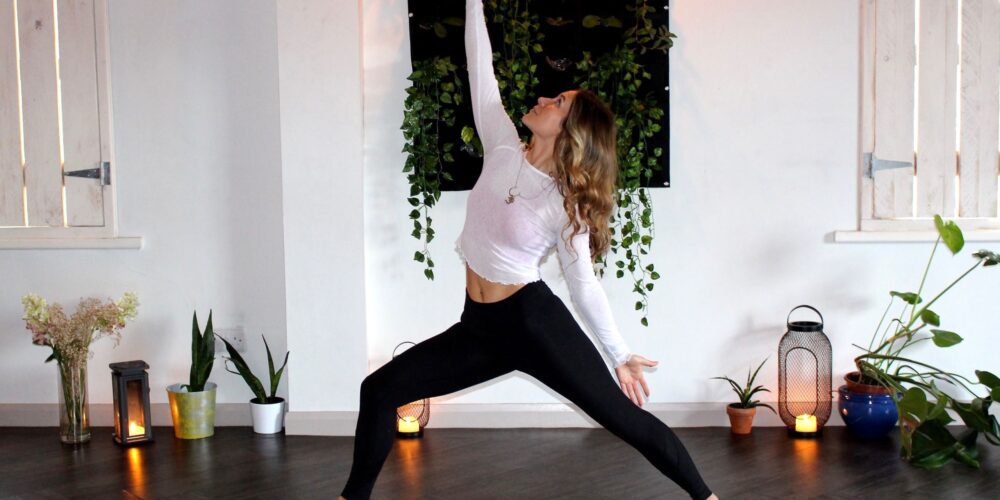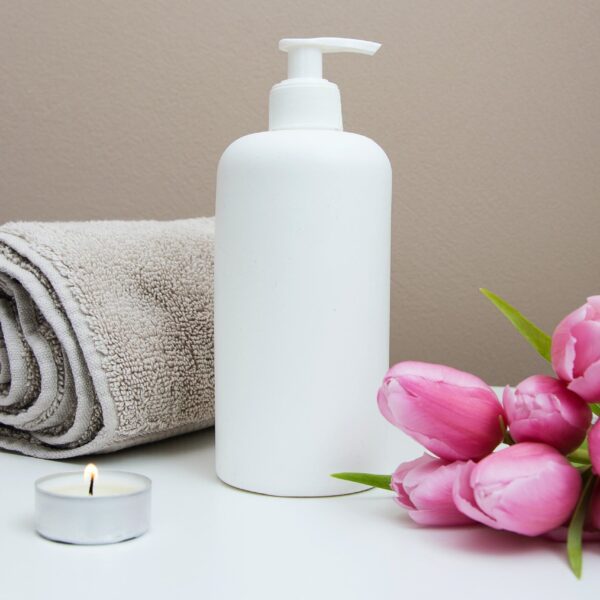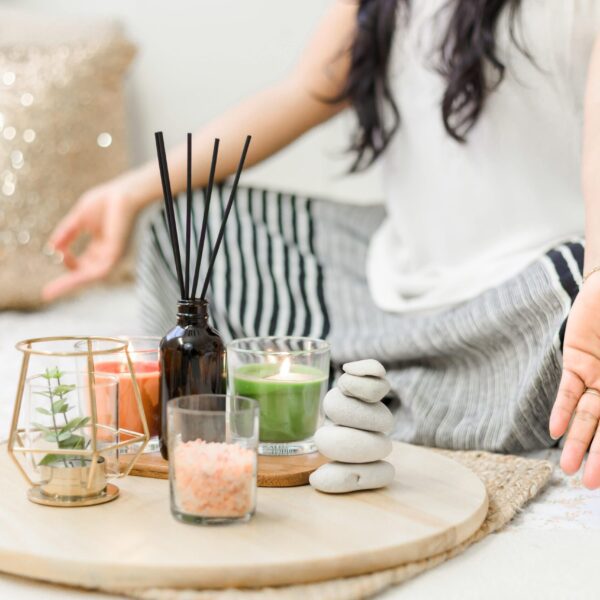Since childhood, our parents have been telling us stories about how they walked kilometers to reach their school. There were no school buses or personal vehicles in those times in India, and it was common to go to school on foot.
Even when we were kids, transportation in India was not that prevalent or well-established and everyone mostly walked to places. And once done with the homework or the daily chores, everyone would do some form of outdoor activity like playing any outdoor sports, going for evening walks, etc.
Those times are now behind us and technology has completely taken over our lives. We’ve talked about how technology has influenced our lives over the past couple of decades or so in this blog and we encourage you to give it a read.
Back then, the pace of life was more measured, and technology had not completely taken over our existence. There were no smartphones or fancy gadgets to draw our attention, and screens did not dominate our leisure time.
Walking to school, playing in the neighborhood, and doing outdoor activities were a natural part of our day. People had meaningful social connections over wholesome and nutritious meals.
Fast forward to today, and the entire landscape has changed. The familiar cadence of footsteps has been replaced by the buzz of car engines, fresh wholesome meals have been replaced by fast foods and packaged snacks, outdoor activities have been replaced by online games and streaming platforms, and meaningful social connections have been replaced by chatting over social media.
A few months ago I was talking to a colleague of mine and I asked him if he plays any sports or goes to the gym. He so casually said that there’s too much walking in the office itself and there’s no energy left to do any other physical activity.
Just walking to people’s desks, to the cafeteria, or to the washroom in the office premises has become too much physical activity nowadays. It makes me wonder, what has become of us?
Soon after COVID-19 hit us, all of us were confined to the walls of our homes, and so many of us started experiencing physical and mental health issues after a while. We were, and we still are living a very hectic and fast-paced life but the lockdown made us take a pause and think about the most important thing in our lives, our health, which we are constantly neglecting.

Welcome back to our self-care series where we are on a journey to explore the different dimensions of self-care in detail. Our first blog was an introduction to self-care where we talked all about self-care and why is it so important in our lives.
The second blog was about mental self-care where we discussed its importance in today’s world. We discussed the importance of prioritizing our mental well-being and the challenges posed by the modern-day lifestyle.
In this third blog of our self-care series, we will be focusing on another crucial aspect of self-care, the physical dimension.
Our physical and mental health are so intricately connected that one has a significant impact on the other and so, in this blog, we’ll talk about what is physical self-care and why is it so important for your overall health. We’ll discuss some tips and strategies that will help you create your unique physical self-care routine.
Table of Contents
What Is Physical Self-Care
As we discussed in our first blog of this series, self-care is about taking intentional steps and actions to take care of your health. And as the name suggests, physical self-care is about proactively doing the things necessary for your physical well-being.
Our lifestyle today has become so sedentary and fast-paced that we don’t prioritize our well-being unless we’re explicitly told by the doctor. Self-care is about taking that proactive approach and doing the things necessary to ensure your well-being.
Think about it, you brush your teeth every day, take a bath, wash your hands, etc. All these are very basic self-care activities. Anyone can do them, but more importantly, everyone should do them.
Physical self-care is a mix of both simple daily habits like these and more intentional and structured routines that lead to a holistic approach to nurturing your body. It’s about having a positive relationship with your body and providing everything necessary for it to function well.
Moreover, physical self-care is not just about preventing illnesses, it’s about improving your overall quality of life. For example, regular physical activity, which is one of the basic requirements of a physical self-care routine, not only keeps your physical body healthy and fit but also releases endorphins in the body that are natural mood lifters.
Similarly, a well-balanced nutritious diet not only supports your physical health but also improves your cognitive abilities and influences emotional stability.
So, physical self-care is a proactive and intentional approach to preserve and promote your body’s well-being.
The Importance of Physical Self-Care
Out of all the different types of self-care, physical self-care is the most important I would say. Mental health issues are on the rise in recent times so everyone is focusing on mental health nowadays but to tend to any other aspect of your life, you’ll first have to be physically fit. You won’t be able to do anything lying in the bed.
We now live in a world where everyone is expected to be productive all the time. It is the need of the hour. And in the middle of all this, we forget to take care of our bodies. We think that activities like exercising will consume time that could otherwise be used for productive things.
See, we humans were not meant to live this type of sedentary lifestyle. We have evolved from being hunters and gatherers, where we used to be constantly on the move and lived in small groups, to the modern-day humans where we now live in civilized societies, spend most of our time indoors in front of a computer screen, eat fast foods, and have limited social connections.
While our bodies have adapted to this shift in lifestyle to most extent, we can’t completely forget about the basic necessities of being human. We must strike a balance between the needs of the modern-day lifestyle and taking care of our bodies.
When we ignore the basic needs of our body, something or the other is bound to go wrong and that’s when we face health issues. Just like being productive, taking care of our bodies is also the need of the hour.
When you take care of your physical body, you’re fortifying it against health issues like heart issues, diabetes, obesity, etc that are so prevalent in today’s world. When you exercise, your body releases happy chemicals that improve your mood and help in fighting stress.
So, in a world where the demands of work and daily life are so overwhelming, physical self-care is an absolute necessity. It’s not about fixing your physical health issues, but preventing you from reaching that stage.
7 Physical Self-Care Tips and Strategies
As I did in our previous blog on mental self-care, I’ll share some tips and strategies in this one too that will help you understand the basic pillars or fundamentals of physical self-care so that you can create your unique and personalized physical self-care routine.
1. Body Awareness
Before you start with any routine, my first recommendation would be to get your full body scanned. This will do two things for you. First, it will give you a snapshot of your body’s current state. You’ll know if there are any existing issues in the body that need to be tended to first.
Almost all health-related issues can be cured if diagnosed in time. The full-body scan will highlight the areas that might need your immediate attention.
Second, the scan will tell you about any deficiency your body might be facing. There could be certain vitamin deficiencies in your body that might not be a big deal at first but these deficiencies can snowball into bigger issues later on.
So those deficiencies must be identified in time so that you can adequate measures to overcome them. Whether it’s through a natural diet or supplements, you’ll know how to overcome those deficiencies.
The other thing to keep in mind is that these scans are not a one-time thing. You need to get your body scanned regularly after a certain period of time. If you’re a young adult, you can go for such scans once a year but if you’re older, maybe twice a year will be more sensible.
2. Physical Activity
Once you’ve made sure that there are no existing problems in your body, you’re ready to start with your physical self-care routine where you’ll incorporate a few things you need to focus on regularly. Some of these things will have to be done daily, and some after a certain interval, like once or twice a week.
Let’s start with the heart of your physical self-care routine, physical activity. Don’t think of physical activity as just another checkbox in your self-care to-do list, it’s the cornerstone of your overall well-being. Some aspects of your physical self-care routine can be done once or twice a week but physical activity is something that should be done every day.
Even on days when you fall off the wagon on certain aspects such as diet, physical activity will compensate for it but there is no substitute for physical activity. Nothing has more benefits to your overall health than exercising. If there is just one thing that you should be doing to take care of your body, it’s exercise.
My recommendation would be to curate a routine for yourself that includes both cardiovascular exercises as well as strength training. When you start doing it regularly, you’ll realize that it is the best way to improve your mood naturally, prevent illnesses, handle stress, and sleep better.
So make sure that you exercise for at least 30-45 minutes daily.
Read our blog on how physical activity impacts your quality of life to understand in detail its benefits.
3. Good Quality Sleep
We all have 24 hours in a day, and if we sleep for around 8 hours, we’ll spend a third of our life sleeping. Feels like a waste of time, right? In a world that glorifies productivity, how I can sleep for 8 hours? I think there is a very strong need for all of us to understand that getting good-quality sleep is a prerequisite for good overall health.
A newborn baby sleeps for around 12-16 hours in day. That is because all the growth and repair processes in the body happen while we’re asleep. Old and damaged cells are replaced and new cells are formed. In simple terms, the body repairs and grows when we’re asleep. That’s why, the maximum growth of the baby happens when it’s asleep.
And for the same reason, it’s important for us adults as well to get good quality sleep. We don’t grow anymore after a certain point but the body cleans and repairs itself when we’re asleep. Research has shown that people who don’t get enough good quality sleep are more prone to get cancer and other diseases than the ones who get adequate good quality sleep.
Additionally, when you get a good night’s sleep, you feel refreshed and energized the next morning. You have the strength and will to take on whatever challenges the day throws at you. Your concentration level and cognitive abilities will be higher if your mind is refreshed after a good night’s sleep.
Make sure that you’re following the bedtime rituals and getting enough good quality sleep. Anywhere between seven to nine hours is good enough.
4. A Well-Balanced Diet
The next crucial aspect of your physical self-care routine is a well-balanced nutritious diet. Our body needs a wide range of macro and micronutrients to function well. Each has its role in the proper functioning of the body, and if certain nutrients are missing from our daily diet, they lead to certain deficiencies in the body which can later result in illnesses or diseases.
So, make sure that you eat mindfully. A few tips on how you can do that:
- Mindful Eating Routine: Some people have a habit of skipping breakfast and then having a heavy lunch and dinner, which is a very unhealthy practice. Consume well-balanced meals during breakfast, lunch, and dinner and if needed, add healthy snacks in between.
- Fresh and Nutritious Diet: Make sure you include fresh, raw, and colorful seasonal fruits and vegetables in your daily diet. This will ensure that you’re receiving the entire spectrum of vitamins and minerals required by your body to function well.
- Avoid Fast Food and Packaged Goods: These types of foods might give you a temporary high but have a very negative impact on your overall health.
First, the temporary high is followed by a sudden crash, so you feel low right after eating such foods.
Second, these foods negatively affect the serotonin receptors in the gut which affects your overall mood. Read this Harvard blog to know more.
Third, they are not nutritious at all. Although they fill your bellies, they don’t benefit your health in any way.
And fourth, they are high in sugar, unhealthy fats, and added preservatives that harm your system in different ways.
We’ve written two blogs on this topic that talk in detail about how food impacts your quality of life, and different superfoods you should consume daily. Once you’ve read both of them, you’ll have a good enough understanding of what to eat and what to avoid.
5. A Mindful Work Routine
The next tip is about having a healthy and mindful work routine as our work life is one of the major contributors to stress for most of us. We spend almost 9 hours a day on the job, and sometimes even more, which is a substantial chunk of our waking hours. The demands of our job can at times stretch into overtime and we are glued to our seats for hours.
In the middle of this grind, we forget the basic things like taking breaks, meals, and sometimes even drinking water. I understand that doing a job is not a choice but a means to survive, but doing it day in and day out without breaks, skipping meals, working overtime, and sitting for long hours can seriously mess with your health and have irreversible effects.
That’s why, you must have a mindful and healthy work routine. Plan your day intentionally and do the most important tasks early on to ease off the pressure. Take regular breaks to stretch your legs, drink water, and clear your mind.
Don’t take on too much work so it doesn’t pile up in your backlog. Respect your working hours and have a healthy work-life balance. Don’t let your job take over your life.
Yes, work hard, but remember, your job is just one part of your life, a means to survive. It’s not your entire existence. So, give it the attention it needs, but don’t let it swallow you whole.
6. Practice Basic Personal Hygiene Regularly
Take care of your physical body every day by practicing some basic personal hygiene. It doesn’t have to be anything fancy, but some basic practices that we are taught since childhood.
First, maintain oral hygiene. Brush your teeth twice a day, once when you wake up and once before going to bed. Not only it will prevent your teeth from decaying, but it will also ensure that you don’t have a foul breath.
Our bodies release toxins throughout the day in the form of sweat. So daily showers are a must. And if you exercise in the evening, make sure you take a bath after that as well. Taking a shower will not only clean your body, but it will also make you feel fresh and relaxed. Make sure you wear clean clothes after taking a bath because you don’t want those toxins back on your body.
Practice a basic skincare routine. It can be as straightforward as washing your face, applying lotion, and a dab of lip balm. Keep it simple, but be consistent. Check the creams and lotions you’re using and make sure they don’t have anything that can damage the natural protection layer of your skin.
Do these simple things and do them every day.
7. Pamper Yourself Occasionally
The last tip would be to pamper yourself occasionally. When you’re working too hard, it’s important that you take a pause and give yourself the royal treatment. That would include the things most people think of when they hear the word “self-care”, like spa treatments, bubble baths, etc.
Like any other self-care practice, this is also not a one-size-fits-all scenario. Pampering is about what makes you genuinely happy. If a spa day sounds like your thing, go for it. If you’re someone who prefers something like adventure sports like rock climbing, ice skating, or go-karting, then go for them. Identify the things that bring you joy and make them an occasional part of your routine.
The other aspect of pampering yourself is going on vacations. Take some time off from the daily grind and go on vacations with your friends and family. It doesn’t have to be out of the country every time, but a camping trip to a nearby spot will also do, the goal is to disconnect, relax, and come back with a fresh perspective.
Pampering yourself is not a guilty pleasure, but an occasional part of your self-care routine. So, whatever your schedule and budget allow, go for those opportunities to pamper yourself and create lasting memories. You deserve it.
Wrapping Up – What Is Physical Self-Care and Why It Is Important for Your Overall Health
As we wrap up this blog on physical self-care, I hope you’ve gained some valuable insights into why physical self-care is an absolute necessity in today’s world.
We talked about the time when physical activity, good food, and meaningful social connections were the way of life and how the buzz of car engines and the glow of screens have replaced the sounds of footsteps and outdoor activities.
We discussed how technology has completely changed the landscape and how it has impacted our lifestyle. We now live in a world marked by sedentary habits and the need for physical self-care is now more than ever.
In the second half of the blog, we talked about the seven fundamental tips and strategies, the building blocks for creating your personalized physical self-care routine.
In the end, I want you to remember that physical self-care is about striking a balance between our technologically advanced lifestyle and the well-being of our bodies. Health issues are on the rise and the need for self-care has never been higher.
Consider these seven tips as the toolkit for creating your unique and personalized physical self-care routine. Don’t strive for perfection, but create an intentional and achievable self-care routine. See you in the next blog! Namaste!







Leave a Reply